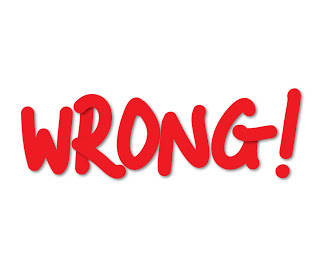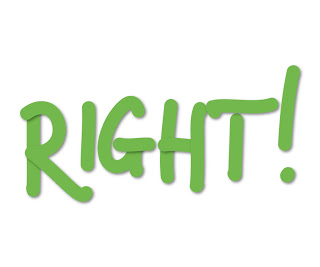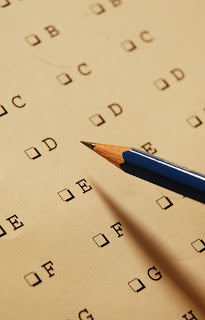 Here on the Lion’s Whiskers blog we have had much to say, recently, on the topic of moral courage and morality – how it is learned, how we can help our children develop it and how we can support it in them and ourselves. In its simplest terms, we can say that being guided by a moral conscience means being able to tell the difference between right and wrong, good or bad. And although there are certainly cultural differences that shade those words, “right” , “wrong”, “good” and “bad” in slightly different tones, I suspect most people would agree that if they saw a child bite another child and grab the toy away, they would discourage that behavior; and if they saw a child helping another one to stand up after a fall, I suspect they would mostly all want to encourage that. A deeper appreciation will also involve understanding why something is right or wrong, good or bad, understanding what values may be involved and why we might want to promote them. Our justice system recognizes a difference between the letter of the law and the spirit of the law, and a robust conscience will always, I hope, seek to follow the spirit behind the letter rather than rigidly adhering to the letter and allowing the spirit be distorted. Children can be adroit litigators, triumphantly reminding us of our exact words when we suspect they knew full well what we meant to imply when we said them. This is definitely good training for a parent or teacher in being really really really crystal clear, but it also leaves behind the uneasy feeling that some moral quicksand may be nearby, that queasy sensation that my child just “got away with” something right in front of my eyes, and we both know it. We want our children to consider our explicit words and their implicit meaning, taking account of what our family’s lived ethics are.
Here on the Lion’s Whiskers blog we have had much to say, recently, on the topic of moral courage and morality – how it is learned, how we can help our children develop it and how we can support it in them and ourselves. In its simplest terms, we can say that being guided by a moral conscience means being able to tell the difference between right and wrong, good or bad. And although there are certainly cultural differences that shade those words, “right” , “wrong”, “good” and “bad” in slightly different tones, I suspect most people would agree that if they saw a child bite another child and grab the toy away, they would discourage that behavior; and if they saw a child helping another one to stand up after a fall, I suspect they would mostly all want to encourage that. A deeper appreciation will also involve understanding why something is right or wrong, good or bad, understanding what values may be involved and why we might want to promote them. Our justice system recognizes a difference between the letter of the law and the spirit of the law, and a robust conscience will always, I hope, seek to follow the spirit behind the letter rather than rigidly adhering to the letter and allowing the spirit be distorted. Children can be adroit litigators, triumphantly reminding us of our exact words when we suspect they knew full well what we meant to imply when we said them. This is definitely good training for a parent or teacher in being really really really crystal clear, but it also leaves behind the uneasy feeling that some moral quicksand may be nearby, that queasy sensation that my child just “got away with” something right in front of my eyes, and we both know it. We want our children to consider our explicit words and their implicit meaning, taking account of what our family’s lived ethics are. This capacity for seeking, questioning, interpreting and choosing is moral reasoning. Moral reasoning is a process that can easily produce two or more “right” responses to a situation just as it may discover more than one “wrong” response. What I wonder about is an education system that places so much emphasis on high stakes standardized testing, and whether children are internalizing the message that when it really counts, there is only one right answer. The stress and anxiety associated with these tests is bad enough, but I wonder about other possible effects as well. There may be only one right answer to the algebra problem, but if that postulate – that there is but one right answer – is carried over into other parts of our children’s lives, what then?
This capacity for seeking, questioning, interpreting and choosing is moral reasoning. Moral reasoning is a process that can easily produce two or more “right” responses to a situation just as it may discover more than one “wrong” response. What I wonder about is an education system that places so much emphasis on high stakes standardized testing, and whether children are internalizing the message that when it really counts, there is only one right answer. The stress and anxiety associated with these tests is bad enough, but I wonder about other possible effects as well. There may be only one right answer to the algebra problem, but if that postulate – that there is but one right answer – is carried over into other parts of our children’s lives, what then? I don’t know if this is happening or not. I can share an anecdote from my teaching experience, however. For many years I have visited schools around the U.S. as a guest author, often giving writing and researching workshops as part of my visit. On one such trip to a Texas middle school I tried to demonstrate to the students how I interpret historical photographs, extrapolating information from the observable details. What met this lesson was an almost complete inability – or unwillingness – to hazard a guess, to propose a possible interpretation, to reason from the evidence. Repeated urging got me nowhere. “Do you see leaves on the trees in the photograph? No? So do you think this picture was taken in the summer? Do the people appear to you to be warmly dressed? Are they engaged in leisurely activities or do they appear to be under any stress?” Later, over lunch with the librarian who had invited me, I asked her about the students’ stifled response. “They won’t guess,” she said. “They don’t like to make inferences. They won’t draw conclusions in case they are wrong.” I have shared this anecdote with other librarians and teachers around the country, and been told it did not surprise them.
Dear reader, if you have a strong rebuttal to my proposition, please share. I’d like to be proven wrong.

